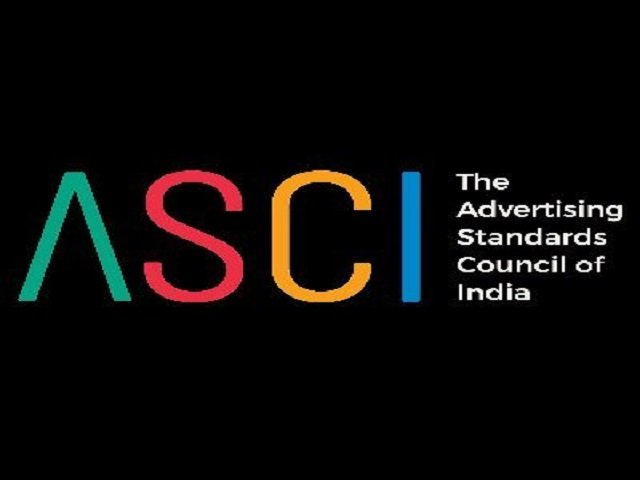Galactus Funware Technology, the parent company of real-money gaming platform Mobile Premier League (MPL), has sent a legal notice to the Advertising Standards Council of India (ASCI), demanding the withdrawal of a whitepaper on opinion trading and seeking Rs 50 crore in damages for alleged defamation and loss of goodwill.
The notice alleges that ASCI’s whitepaper, titled “Examining Opinion Trading in India,” is biased, misleading, and relies on tampered versions of MPL’s advertisements to portray opinion trading as risky and non-compliant.
According to a report by The Economic Times, the notice, dated May 23, 2025, was sent through law firm Trilegal. MediaNama attempted to reach out to Trilegal to independently confirm the notice but did not receive a response. A representative declined to comment.
“We are in receipt of the notice and there is absolutely no question of tampering,” ASCI told The Economic Times in response.
MPL Alleges Tampering and Misrepresentation
In the notice, Galactus Funware claims that ASCI selectively edited screenshots from its campaigns to support a “baseless conclusion” that opinion trading carries elements of risk and potential financial loss. One cited example is an educational YouTube video titled “Skill, Interest, Knowledge”, which MPL says was taken out of context and edited to imply gambling-like features, despite focusing on skill development.
The company also alleges that disclaimers included in the original ads were removed, misrepresenting MPL’s compliance with ASCI’s advertising codes. MPL further claims that ASCI’s tone reflects “vested interests” and lacks objectivity.
MPL Questions ASCI’s Mandate
Beyond the specific content of the whitepaper, Galactus Funware has challenged ASCI’s authority to issue commentary on the legality of opinion trading platforms. The company argues that ASCI’s Code for Self-Regulation in Advertising does not authorise it to determine the legality of an industry. Copies of the legal notice were also sent to the Ministry of Information and Broadcasting and the All India Gaming Federation.
MPL’s High Stakes in India’s Digital Gaming Economy
MPL’s legal challenge to ASCI shows how fast-growing tech platforms are pushing back against voluntary regulatory frameworks. With more than 90 million users and a valuation of $2.19 billion according to a report by Business Outreach. Its parent company, Galactus Funware Technology, has raised over $375.5 million through multiple funding rounds.
The legal notice sent to ASCI raises broader questions about how regulators will treat new monetisation models in gaming, how platforms must disclose financial risks, and whether India’s current frameworks can keep pace with the rapid growth of real-money gaming.
Regulatory Context: Opinion Trading Under Scrutiny
MPL’s legal notice lands amid intensifying legal and regulatory pressure on opinion trading platforms across India. High Courts in Gujarat, Chhattisgarh, and Bombay are currently hearing petitions that argue these platforms encourage speculative gambling under the guise of skill-based prediction.
While platforms like MPL frame their offerings as skill-based, courts are examining whether the outcomes actually depend on chance. In April 2025, the Securities and Exchange Board of India (SEBI) clarified that such platforms fall outside its regulatory scope and do not qualify for investor protections. It also cautioned users about apps that mimic legitimate financial services.
At the state level, scrutiny has also intensified. The Chhattisgarh government has ordered telecom operators to block access to several opinion trading platforms. In parallel, platforms like Probo and SportsBaazi have shut down operations in Haryana and Tamil Nadu, citing regulatory uncertainty.
ASCI’s Enforcement Actions on Opinion Trading Platforms
According to complaint data sourced from Status of Advertisement Complaints Registered with ASCI (Data Set: Dataful), the Advertising Standards Council of India took action against multiple real-money gaming platforms in FY 2024–25. These included:
Advertisements
- Playerzpot Media Pvt. Ltd. – 32 complaints
- Tradex Live – 7 complaints
- Probo Media Technologies Pvt. Ltd. – 2 complaints
- Real11 Fantasy Sports LLP – 2 complaints
- Algotradex – 1 complaint

Chart: Number of complaints received by ASCI against major opinion trading platforms in FY 2024–25. Source: Dataful. https://dataful.in/datasets/20112/
Most of these cases involved digital advertisements, and in several instances, particularly those concerning Tradex—ASCI upheld the complaints, citing direct violations of the law. While Galactus Funware does not appear in the complaint records, the data points to a broader enforcement pattern against similar real-money platforms operating in the opinion trading space.
User Impact and Consumer Protection
Platforms like MPL claim that opinion trading relies on skill-based predictions, but petitions in courts including one filed in the Gujarat High Court challenge this narrative. The petitioner in that case argued that these platforms promote gambling disguised as entertainment, enabling users to stake money on real-world events like cricket matches and cryptocurrency movements. He further alleged that these apps lure users into betting without requiring skill or cognitive effort, calling them games of chance rather than skill.
The petition also raised concerns about the impact on young users. The petitioner claimed that children compulsively spent money on these platforms and that MPL failed to implement effective age verification, relying only on identity proof at the cash-out stage. Advertisements, the petitioner said, often promised guaranteed profits and zero risk, encouraging users to spend money under the illusion of safety.
While the legal debate continues, these allegations highlight why opinion trading platforms face mounting scrutiny not just for their classification under gambling laws, but for how they advertise and protect users in practice.
Why This Matters
MPL’s legal notice highlights how platforms in sectors like opinion trading have started pushing back when they believe others misrepresented. Instead of targeting a government regulator, MPL sent the notice to a self-regulatory body-ASCI showing that even voluntary oversight now sparks conflict. Since no clear law governs opinion trading and regulators like SEBI have stepped back, bodies like ASCI play a bigger role in shaping how the public and policymakers view these platforms.
MediaNama has reached out to All India Gaming Federation (AIGF) for their comments on this matter. The story will be updated if we receive a response.
Also read:
Support our journalism:
For You
Source link





